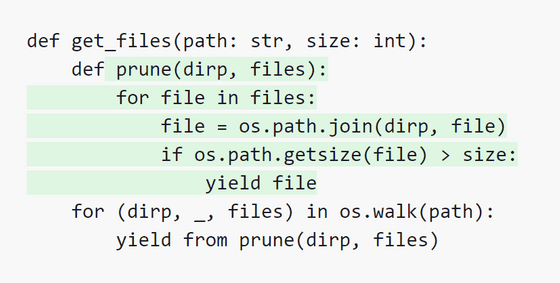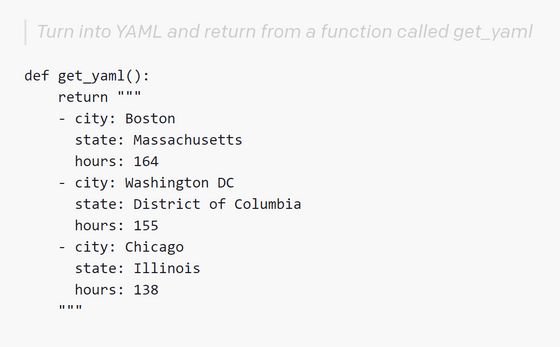Sentence generation AI 'GPT-3' that can also support coding has evolved to generate content according to the context

The high-performance sentence generation AI 'GPT-3' that
New GPT-3 Capabilities: Edit & Insert
https://openai.com/blog/gpt-3-edit-insert/
Until now, GPT-3 was able to read existing sentences and write the continuation, but it was not possible to change only in the middle of the already written sentences. With this update, when GPT-3 generates a sentence, it will be possible to 'insert in the sentence' as well as 'add to the end'.
For example, the image below is a sentence generated by GPT-3 based on the table of contents 'Graduated from high school'. The place where GPT-3 was generated is highlighted in light green, and a safe greeting 'Congratulations to all graduates!' Is unfolded.

If you add 'Section 2: Moving to San Francisco' at the end of the sentence generation, the subject of the generated sentence will change to 'Graduation person' and 'Move to San Francisco and start a new life' will be added at the back. It changed according to it.

Perhaps GPT-3 likes farm life, the amount of text increases sharply when the back is 'moving to the farm'.

By using such an 'insert' function, it will be possible to generate code that matches the contents behind when complementing the code by programming. In the image below, the missing 'prune' function has been complemented.

In this update, in addition to 'Insert', a function called 'Edit' has been added. Editing is a function to rewrite existing sentences as instructed. For example, as shown in the image below, if there is data on the worst 3 cities in the United States with heavy traffic ...

If you instruct 'Convert to

If you say 'Delete the rank and use the full name of the state', it looks like this.

You can also convert to YAML format.

You can actually try the 'insert' and 'edit' functions by registering as a member on the official OpenAI website , and 'insert' has already started trial operation on GitHub Copilot.
Related Posts:
in Software, Posted by log1d_ts







